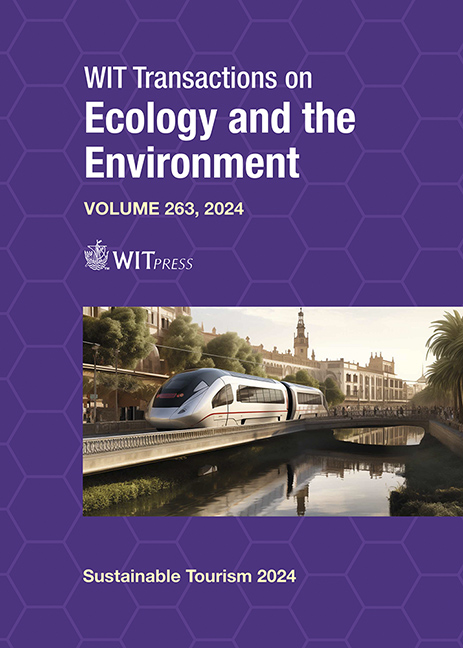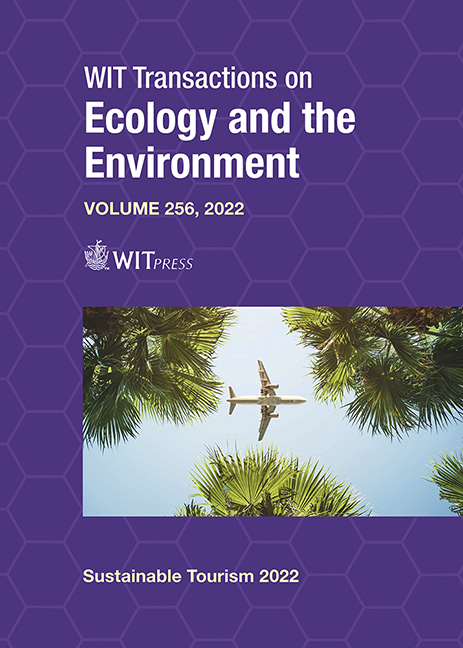Sustainable Tourism XI
Edited By: S. Syngellakis, Wessex Institute, UK
This volume includes discussions on the many ways human societies benefit from tourism through new forms of economic activity leading to greater wealth. Tourism also strongly enhances human perception of the world. Through its physiological and psychological elements, it promotes human welfare, due to both the enjoyment of discovering new territories as well as increased contacts with near or far away societies and cultures.
Some serious concerns arising from the growth of the tourist industry are also addressed. These are mostly associated with social transformations and ecological impacts. Many ancient local cultures are practically losing their identity due to their societies having orientated their economy only to this industry. Both the natural and cultural, rural or urban, landscapes are also paying a high price for certain forms of tourism. Natural ecosystems are now becoming a rarity on the planet and ecologists talk today about ‘socio-ecosystems’. These problems will persist if economic benefit is the only target, leading to short-lived financial gains that become ruinous in the long term. The visitors’ increasing cultural and environmental demands also impose major challenges. Expanding environmental education in the tourist sector can contribute to addressing these concerns.
Technological and social developments associated with tourism play an important environmental role by strongly affecting natural changes inherent in the Earth’s ecosystem (the ‘ecosphere’). Also, technological and social changes are inherent to mankind (the ‘noosphere’) and are now becoming widespread. Cities are growing rapidly and industry requires increasingly larger areas. Many traditional rural areas are being abandoned. However, many historic agricultural districts have maintained, or even recovered, their local population numbers through intelligent tourism strategies focused on nature and rural culture. Natural landscapes and biodiversity are becoming increasingly appreciated. The book provides some indications on how the tourism industry could respond to these aspirations.







